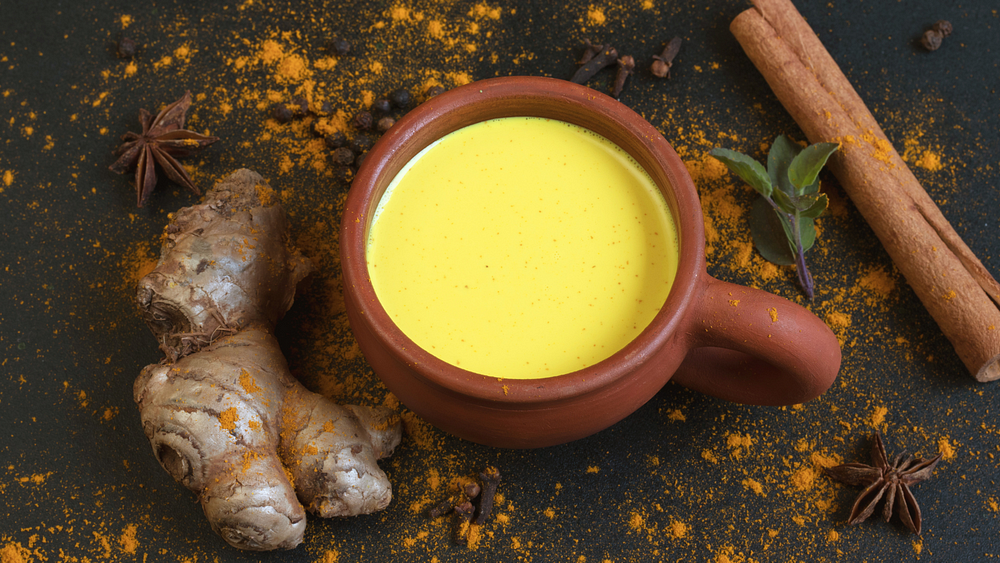In the pursuit of well-being, many are rediscovering the power of ancient remedies. Among these, turmeric has emerged as a shining star, captivating the attention of health enthusiasts and researchers alike. This vibrant spice, with its rich cultural history and potent healing properties, has become a staple not only in kitchens but also in holistic wellness practices worldwide.
The Origins of Turmeric:
Turmeric (Curcuma longa) is a flowering plant belonging to the ginger family, native to Southeast Asia. It has been a staple in traditional medicine systems like Ayurveda and traditional Chinese medicine for over 4,000 years. The bright orange-yellow color of turmeric comes from its active compound, curcumin, which is responsible for many of its health benefits.
Anti-Inflammatory Powerhouse:
One of the key characteristics that make turmeric a wellness superstar is its powerful anti-inflammatory properties. Curcumin has been extensively studied for its ability to modulate inflammatory pathways in the body, potentially reducing chronic inflammation — a common underlying factor in many chronic diseases.

Joint Health and Pain Management:
The anti-inflammatory nature of turmeric makes it a popular choice for those seeking natural joint pain relief. Studies suggest that curcumin may be as effective as certain anti-inflammatory drugs in managing conditions like osteoarthritis and rheumatoid arthritis.
Antioxidant Armor:
Turmeric doesn’t just stop at fighting inflammation; it’s also a potent antioxidant. Curcumin neutralizes free radicals in the body, helping to protect cells from oxidative stress. This antioxidant prowess contributes to overall cellular health and has been linked to potential anti-cancer effects.
Digestive Wellness:
In traditional medicine, turmeric has been used to support digestive health. Additionally, its anti-inflammatory properties may alleviate symptoms associated with inflammatory bowel conditions.

Brain Boost:
The potential cognitive benefits of turmeric are garnering attention in the field of brain health. Curcumin’s anti-inflammatory and antioxidant properties may contribute to neuroprotection and could have implications in managing neurodegenerative diseases like Alzheimer’s.

How to Incorporate Turmeric into Your Diet:
Adding turmeric to your daily routine is easier than you might think. Here are a few suggestions:
- Golden Milk: Combine turmeric with warm milk and other spices like cinnamon and ginger for a comforting and nutritious drink.
- Spice Up Your Meals: Add turmeric powder to curries, soups, stews, or roasted vegetables for both flavor and health benefits.
- Turmeric Supplements: If incorporating turmeric into your diet proves challenging, consider turmeric supplements containing curcumin. Consult with a healthcare professional for proper guidance.
Conclusion:
Turmeric, with its rich history and diverse health benefits, has rightfully earned its place as a superfood. Whether used in culinary delights or embraced as a holistic remedy, this golden spice continues to captivate individuals seeking natural ways to enhance their well-being. While turmeric offers promising health advantages, it’s essential to approach it as part of a balanced lifestyle, complemented by a nutritious diet and regular exercise. As always, consult with healthcare professionals, especially if considering turmeric supplements, to ensure it aligns with individual health needs and conditions. Embrace the golden healer and unlock the potential of turmeric in your journey to holistic health.
Reference:
Aggarwal, B. B., Sundaram, C., Malani, N., & Ichikawa, H. (2007). Curcumin: the Indian solid gold. Advances in Experimental Medicine and Biology, 595, 1–75.
Bundy, R., Walker, A. F., Middleton, R. W., & Booth, J. (2004). Turmeric extract may improve irritable bowel syndrome symptomology in otherwise healthy adults: a pilot study. Journal of Alternative and Complementary Medicine, 10(6), 1015–1018.
Goozee, K. G., Shah, T. M., Sohrabi, H. R., Rainey-Smith, S. R., Brown, B., Verdile, G., … & Martins, R. N. (2016). Examining the potential clinical value of curcumin in the prevention and diagnosis of Alzheimer’s disease. British Journal of Nutrition, 115(3), 449–465.
Henrotin, Y., Priem, F., Mobasheri, A., (2013). Curcumin: a new paradigm and therapeutic opportunity for the treatment of osteoarthritis: curcumin for osteoarthritis management. Springerplus, 2, 56.
Sahebkar, A. (2013). A systematic review and meta-analysis of randomized controlled trials investigating the effects of curcumin on blood lipid levels. Clinical Nutrition, 32(3), 417–425.h and recovery

